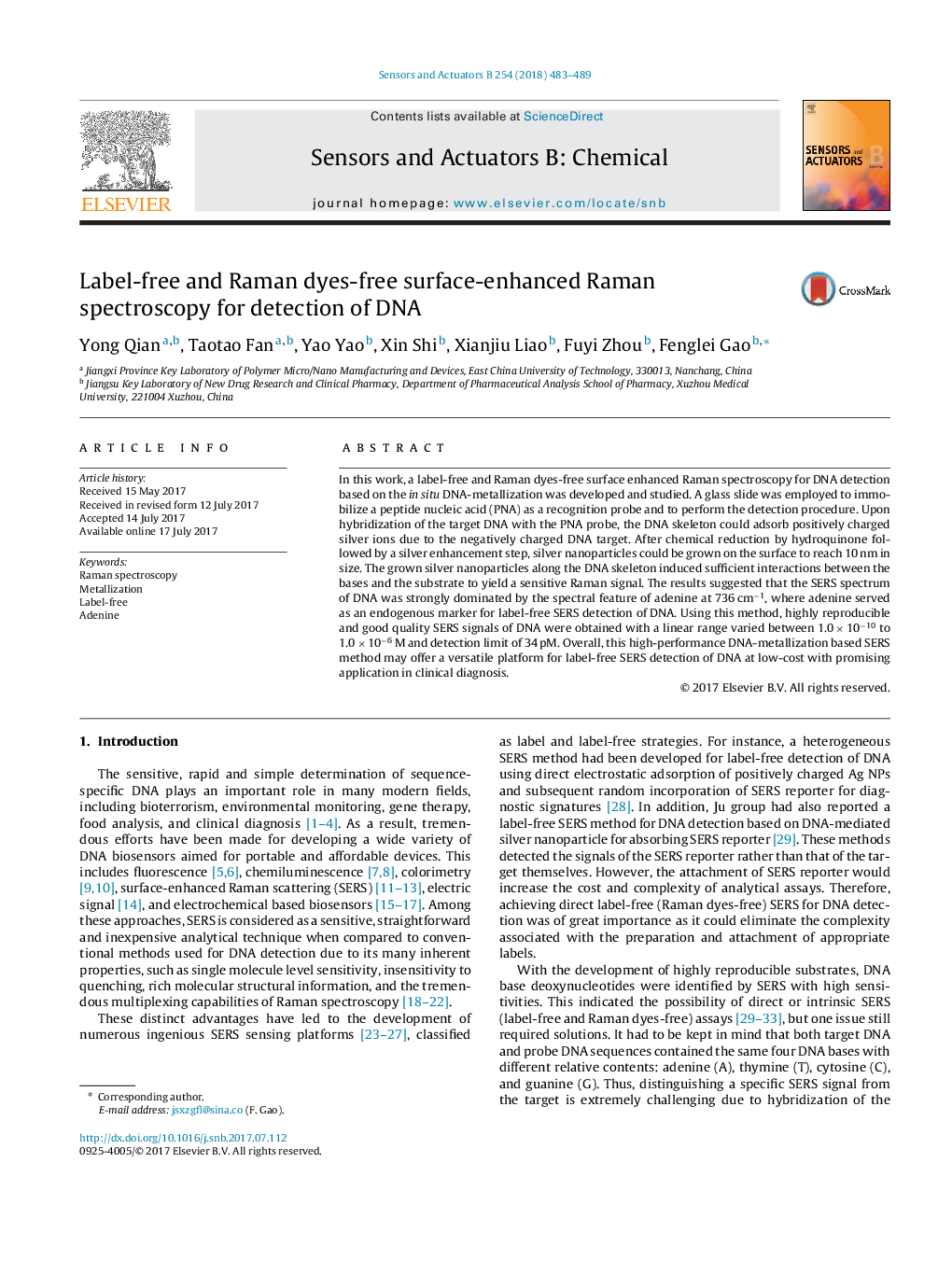| کد مقاله | کد نشریه | سال انتشار | مقاله انگلیسی | نسخه تمام متن |
|---|---|---|---|---|
| 5008701 | 1462037 | 2018 | 7 صفحه PDF | دانلود رایگان |

- A novel label-free and Raman dyes-free surface enhanced Raman spectroscopy biosensor is developed for detection of DNA.
- The SERS signal produced from the adenine base of the DNA.
- The biosensor can detect DNA down to 34Â pM level with a dynamic range spanning 4 orders of magnitude.
- The special structures of the MBs promote the detection selectivity.
In this work, a label-free and Raman dyes-free surface enhanced Raman spectroscopy for DNA detection based on the in situ DNA-metallization was developed and studied. A glass slide was employed to immobilize a peptide nucleic acid (PNA) as a recognition probe and to perform the detection procedure. Upon hybridization of the target DNA with the PNA probe, the DNA skeleton could adsorb positively charged silver ions due to the negatively charged DNA target. After chemical reduction by hydroquinone followed by a silver enhancement step, silver nanoparticles could be grown on the surface to reach 10Â nm in size. The grown silver nanoparticles along the DNA skeleton induced sufficient interactions between the bases and the substrate to yield a sensitive Raman signal. The results suggested that the SERS spectrum of DNA was strongly dominated by the spectral feature of adenine at 736Â cmâ1, where adenine served as an endogenous marker for label-free SERS detection of DNA. Using this method, highly reproducible and good quality SERS signals of DNA were obtained with a linear range varied between 1.0Â ÃÂ 10â10 to 1.0Â ÃÂ 10â6Â M and detection limit of 34Â pM. Overall, this high-performance DNA-metallization based SERS method may offer a versatile platform for label-free SERS detection of DNA at low-cost with promising application in clinical diagnosis.
A novel strategy was developed based on DNA-silver metallization for label-free and Raman dyes-free surface enhanced Raman spectroscopy detection of DNA.157
Journal: Sensors and Actuators B: Chemical - Volume 254, January 2018, Pages 483-489